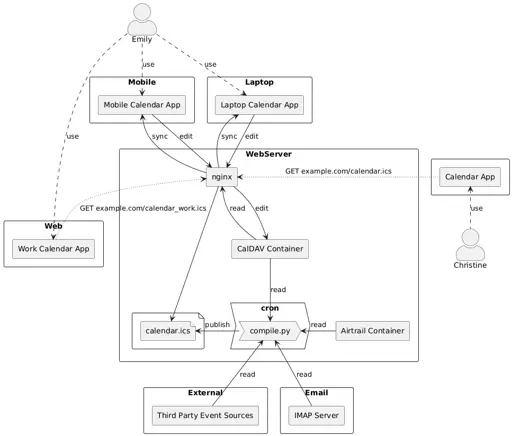For music playing: navidrome is pretty straightforward.
- 23 Posts
- 47 Comments

 2·5 months ago
2·5 months agoBy your description, it seems you are on DSL. Is that the case? Likely you will need a DSL modem.
 2·5 months ago
2·5 months agoIs there any type of browser extension that could help people crowdsource data? It’s the only way I see how to build this dataset.
 2·5 months ago
2·5 months agoI think the issue here is that pricing for trips is heavily dependent on the user profiling and segmentation. It will be hard to find “public” datasets because a query about trips from point A or to point B will vary simply by matter of who is asking.

 1·10 months ago
1·10 months agoYeah, that would be a possibility.
Another thing could be that some of packets are routed out of the optimal path to avoid getting “stuck” in some local maxima? Just a guess, it’s been a while since I played with routing tables.

 1·10 months ago
1·10 months agoWere you talking with anyone in Europe, by any chance?
IPFS for your site?
Use the wordpress AP plugin to federate the posts directly?
I mean, I don’t mean to discourage you from posting. I was just curious for your reasons, and was wondering if you’d also consider these other possibilities.
Ok, then I’m confused… why would you be interested in doing that? Wouldn’t it be better to just post a (short) summary in the body of the post and let people check things out in your blog?
Hey, a bit off-topic, but how did you get the whole blog post here? Are you using the Wordpress plugin, or did you copy the source into your Lemmy client UI?

 2·1 year ago
2·1 year agoAll the more reason to try to keep it on-topic. If things are still just starting, it’s quite easy to derail it by trying to push content that is not necessarily the main focus of the community.
Edit: I updated the rules to be more specific about it.

 23·1 year ago
23·1 year agoThanks for the submission, but it feels a bit off-topic for this community, no?
Communities on selfhosted.forum are meant for community support and exchange of information, and less about general news.
Are you familiar with Traefik in any way? It will really pay off if you do.
Redundancy seems always a good idea. The only question which server you’d use for failover and is whether you are okay with the idea of your traffic going there.
Are you building it with any of configuration files or credentials inside?
But why would you want it to be private? Specially for headphones, having it available for the community would be fantastic!
Very nice. Every victory should be celebrated. What image/project were you working on?
I don’t know if you had any issue with the formatting, but your first example is not going to work because you are putting the volumes mapping at the top-level. The correct would be:
version: "3.8" services: example1: image: example.com/example1:latest ports: "8000:80" volumes: - shared_example:/data example2: image: example.com/example2:latest ports: "8080:80" volumes: - shared_example:/data volumes: shared_example: driver_opts: type: nfs o: "192.100.1.100, nolock,soft,rw" device: ":/local/shared"
It was mirroring the corresponding subreddit. Every post and every comment mirrors the reddit account activity. Posters can not engage with the community because the two-way bridge with reddit is not implemented (yet).

 3·2 years ago
3·2 years agoBluRay disks. Every year I make a backup of the really important stuff (documents, family pictures), burn two disks and give each of them to a different family member.












I’ve done it with Authelia, but take a look at https://www.navidrome.org/docs/getting-started/extauth-quickstart/ and you will can find out more options. If all you want is to have a password-protected page, maybe you can go by with just basic digest authentication on Apache (or Nginx, or Caddy) standing as a proxy .